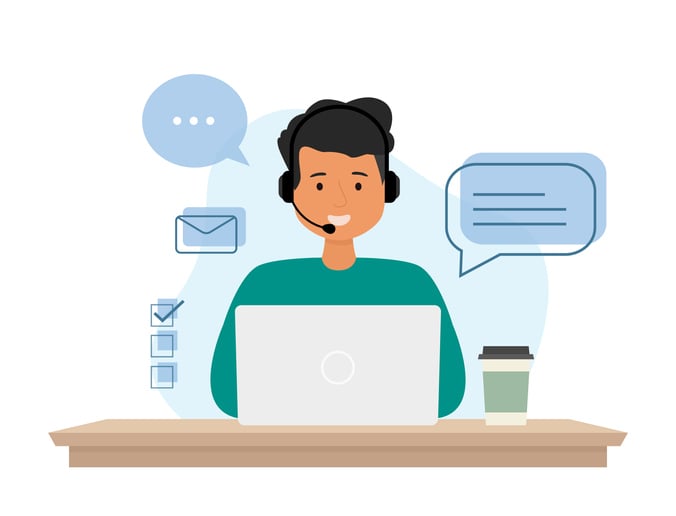Is your business expanding into different global territories? Do you work in the public sector in a region with a multitude of spoken languages? Are you getting enquiries from people in other countries, or who have a limited grasp of English? Whatever the reason, partnering with a Language Services Provider (LSP) will remove language barriers and allow your products or services to reach the widest possible audience.
But what do you need from a LSP? We get clients come to us who’re unsure of what we can bring to the table, but they know they need our help. We’re always more than happy to talk to them about specific needs, or an overall support plan.
In this article we’ll look at what services LSPs offer. We won’t list everything, just the big building blocks to help you realize how much an LSP can do for you so you can decide when you need to engage one.
What Factors Determine the Level of LSP Support?
There’s a range of things we look at when we sit down with clients. Here are the most common ones:
- What are you looking to do? How can we help? Do you need translation, interpretation, localization support or all three?
- What are the languages? Are they consistent, or will they change? Are the common, rare, or somewhere in between?
- Who is the audience? Is this a public facing initiative, or is the translation just a large amount of text that needs to be stored on the back end of a website somewhere, for archival or legal reasons?
- What industry are you in? Some industries are more complex than others. We always use expert linguists with industry experience, so this may mean there are less to choose from which can impact schedules and budgets.
- How much material is there? What’s the volume?
- What type of media is it? Rarely is text the only thing that needs translating. What about the wrapper that houses the text? If it’s a website, digital platform, online portal, brochure or other form of print, they’ll need your LSP’s Desktop Publishing (DTP) team. And video and audio will also need voice over, subtitling or recreating from scratch.
- When do you need it? This could determine the size of linguistic team needed, which will have an impact on timescales and budget.
- What’s your budget? What are your limitations? Can you afford a big team on it? Will you have to rely on more affordable but less contextual technology, or can we put a team of people on it.
Interpretation
Do you have meetings, business appointments or are you attending seminars or conferences where you or your audience will speak different languages? There are a lot of interpretation options your LSP can supply you with such as:
Translation
If you have any sort of internal or external documentation, promotional materials or any form of written text, you’ll need it translated. There are three main types of translation, each with their own pros and cons.
- Human – Expert translators that use a personal touch to handle all your material from start to finish. If your content is sensitive or public facing (advertising, for example) you want to get it 100% right with various people seeing the process through personally.
- Machine – Artificial Intelligence (AI) powered technology that can work for you 24/7, 365 days a year, without human intervention. Great for large volumes of material or content with a short shelf life, but you have to accept that some translated words and phrases may be contextually generic.
- Hybrid – You guessed it, a combination of the two. The level to which you need human intervention will come down to a number of factors around time, budget and required accuracy. A good balancing act and you can slide up and down the post-editing spectrum (human intervention) depending on these factors.
Localization
This is the practice of taking translation to the next level. Localization is taking content and not just changing the language but adapting it so that it fits culturally within a specific community or culture.
It’s translating your content with local nuances so that the audience feels like you’re genuinely speaking to them and that you understand their needs, their wants and their way of life.
As an example, let’s look at our own native language, English. Would you write the same way if you were trying to engage with people in Kansas City, Manchester, Melbourne, Kingston and Johannesburg? Probably not. You’d tailor things for the US, UK, Australian, Jamaican and South African marketplaces.
Find Your Level of Support
The easiest way to find out the level of support you need is talk to your LSP. They shouldn’t just be a supplier, they should be a business partner helping you navigate your company into the future.
Will they have all the answers? Probably not to begin with. Will they have all the right questions to get to the answers? Absolutely.
Get A Quote for Your Language Services Needs
Seeking an LSP for expert assistance in translation, interpretation, or localization? We're eager to connect and discuss your unique requirements.
Enjoy a complimentary consultation without any commitment.
Choose LinguaLinx for assured clarity in your translated or interpreted messages. Our adherence to ISO 17100 and ISO 9001 standards, combined with over two decades of professional translation expertise, has garnered the trust of global organizations.







